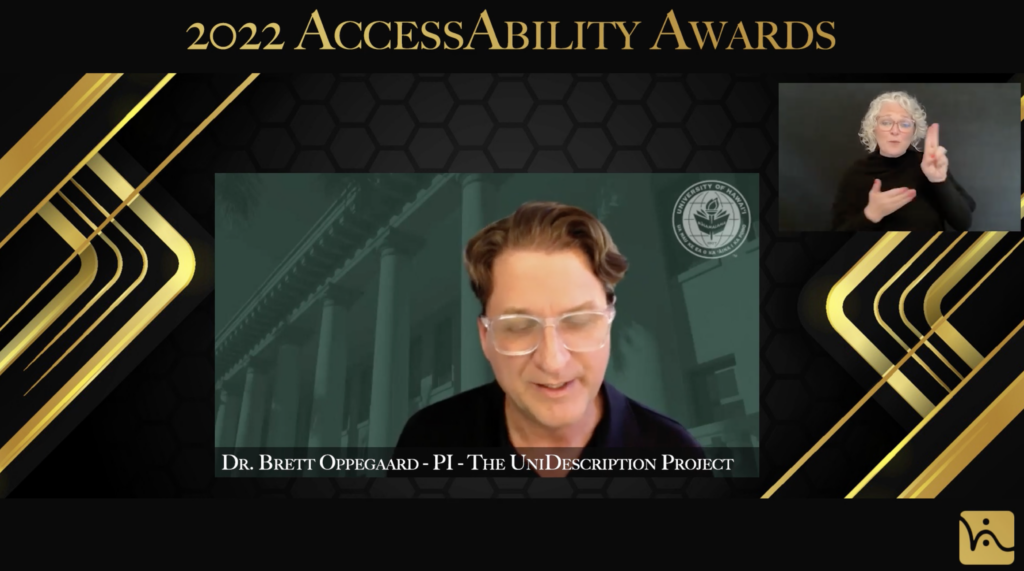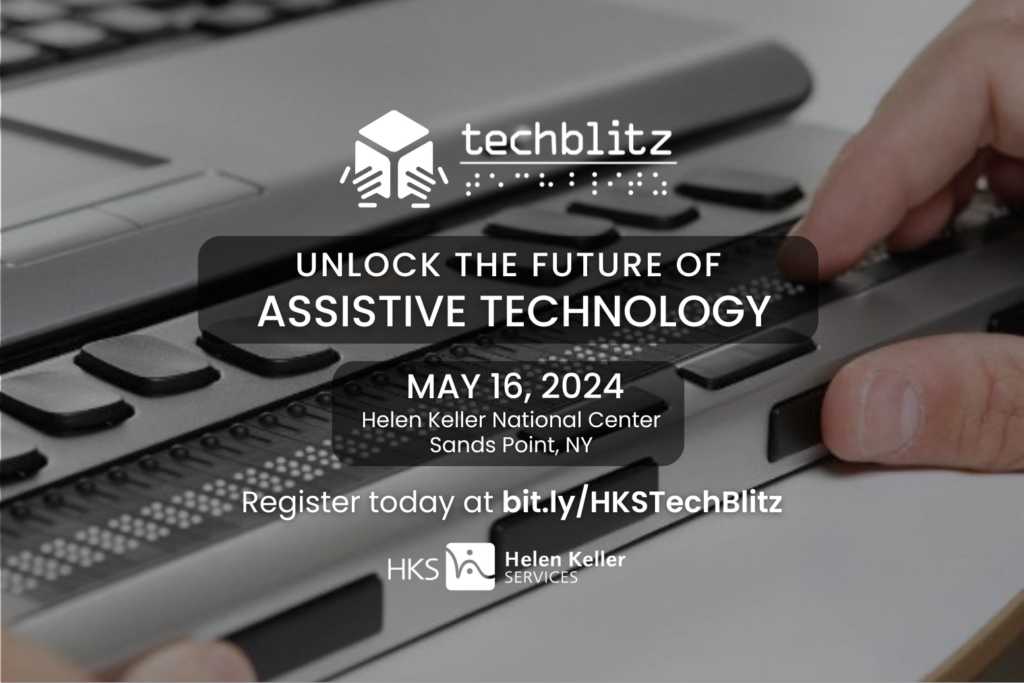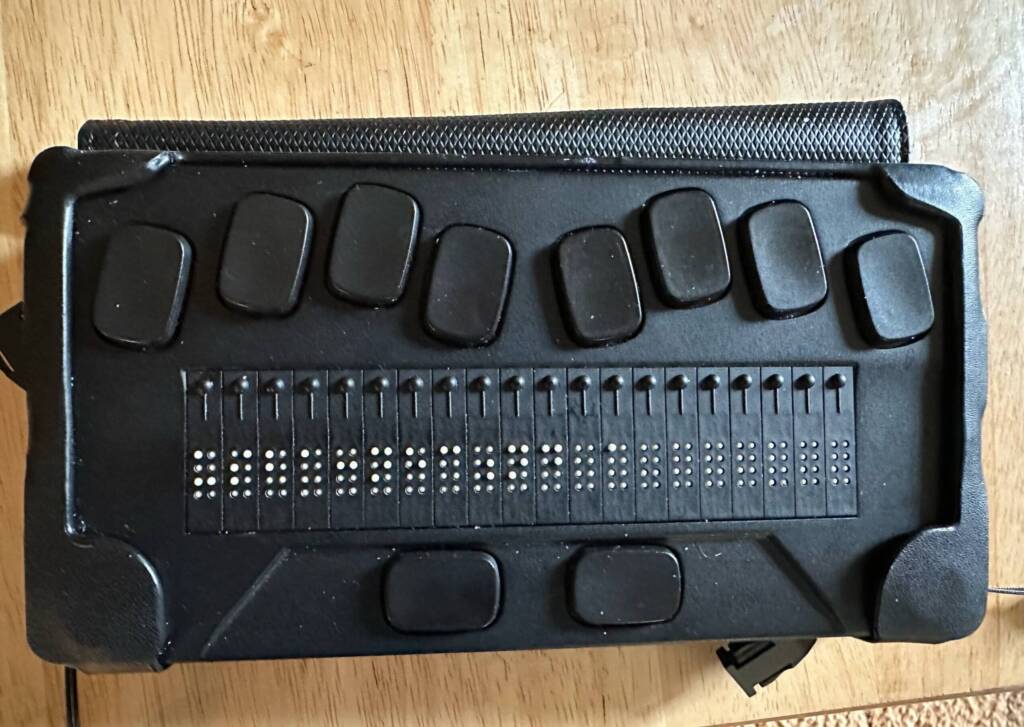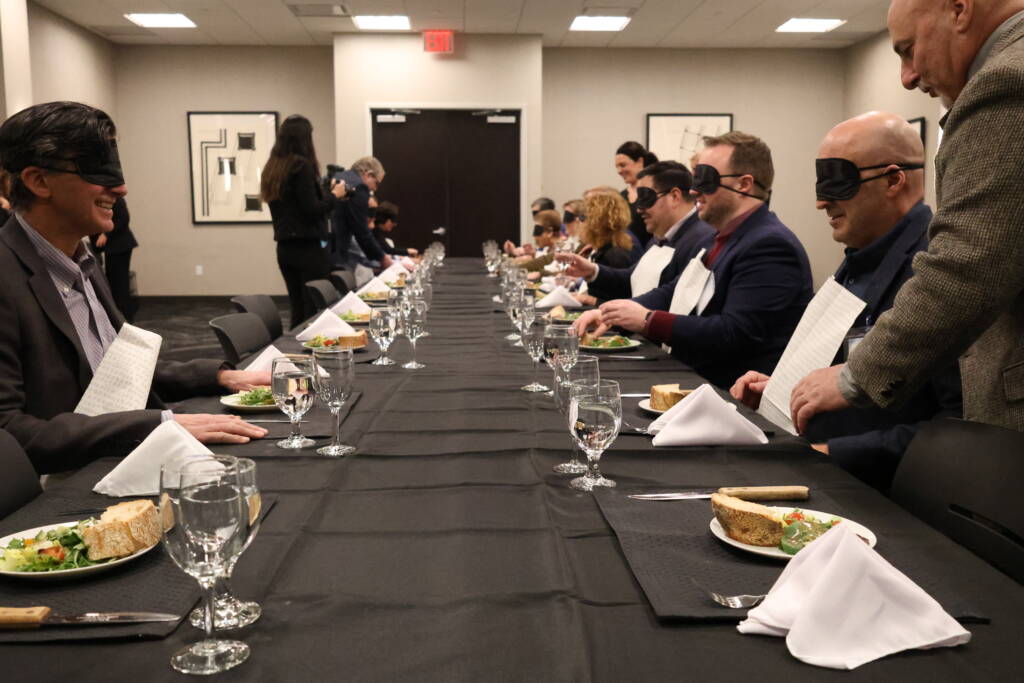By Helen Keller Services | June 30, 2022
Brett Oppegaard: Thank you Helen Keller Services. My name is Brett Oppegaard. I’m an associate professor at the University of Hawaii. I’m going to begin with a short audio description. In my horizontal Zoom screen, I’m shown from my shoulders up. I’m a 51-year-old American man, white in the abstract, but with ancestral origins in the United Kingdom and Norway. Indicating those roots visually, I have blue eyes, pinkish tanned skin with a red undertone and dark brown hair. I am wearing clear glasses. My hair is short on the sides, but kept long on the top, showing some waviness to it. I do not have any facial hair beyond my eyebrows. Contextually, I’m about six feet tall and weigh about 210 pounds, but there’s nothing in this Zoom image to use to gauge my body’s size or shape. I’m wearing a black collared shirt, and I’m extremely honored to be here today and accept this award for the UniDescription Project.
Helen Keller has been an inspiration for me since my childhood. I remember and the first time I watched the film The Miracle Worker and reading about her more in high school and middle school even, and then as an adult becoming more aware of her broad and lasting impact in terms of in terms of improving accessibility around the country, and especially the idea of making our nation more socially inclusive for people who are DeafBlind, which is an important part of the role of the UniDescription project. So being mentioned in the same sentence with her is quite a thrill and an honor, and I often think of her quote, “Alone we can do so little, together we can do so much.” That’s something we think about a lot in the UniDescription project because everything we do is a bunch of small steps, bunch of people, like-minded people working together, trying to help the world over a long period of time.
We have a large support system so when I think of this award, I think I think of it in the spirit of collaboration, which we’re all trying to make the world a more inclusive place. And I think of all the hundreds of people who contribute to the UniDescription project during the past decade.
And I would just like to mention a few of the organizations that have been so critical to make in the UniDescription project successful starting of course with the National Park Service, its Harpers Ferry Interpretive Design Center. Specifically, Michele Hartley is the Accessibility Coordinator for the National Park Service, and the park service and Michelle started this project with me in 2014. They’ve been the guiding and supporting force for it. They have been instrumental in allowing us to do the research we’re doing and also to have the impact we’ve had in the national park system.
Of course the University of Hawaii, my home institution, has provided a lot of in-kind support for my work over the years. Google has stepped in. About five years ago they started contributing to our project and they have been back every year since. I want to make sure to thank them.
The American Council of the Blind has been heavily involved in our project also for the past five years.
The Blinded Veterans Association. We would receive federal support from the National Endowment for the Humanities and National Endowment for the Arts. And all of these different partners have allowed us to spend the time that we have to not only invest in researching audio description but practicing it, putting it into public places, and making the world a little bit more accessible every day.
So thank you again, Helen Keller Services, for recognizing our project and for being such a powerful force for good in the world yourselves. And again, “Alone we can do so little, together we can do so much.” Let’s keep working together to make this world more accessible. Thank you. [End of Transcript]



